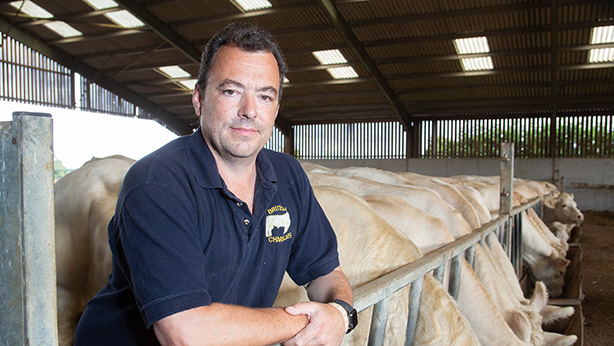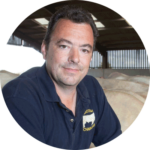Farmer Focus: Would it be hypocritical to continue judging?
 Ben Harman © Tim Scrivener
Ben Harman © Tim Scrivener I recently had a fabulous day out judging at the Devon County show. I was treated to beautiful cattle and a two-year-old heifer that was probably the clearest champion in all my years of judging.
Weather and company were fabulous among friends, old and new. I have a particular soft spot for Devon, having spent five glorious years studying at Seale-Hayne.
Despite enjoying it so much, however, I will not judge again. I’m enormously conflicted about this decision and I’ll try to explain why.
See also: Farmers Weekly Awards: Beef Farmer of the Year finalists 2018
Breeders select for traits that have previously brought success (leg on each corner, spring of rib, good end, moves well and so on).
The effect of selecting breeding cattle this way is to select for no genetic progress and breed cattle that mimic the previous generation.
The advent of performance recording threatened to upset that stasis, but has failed to gain the same traction in the beef industry as it has in the dairy, pig or poultry sectors, where the subsequent rate of genetic gain has been massive.
What is the effect on the appearance of the cattle we so love, if what we select for is measured not by the eye, but through acceptance of data-driven decisions?
The most productive cattle may look different from those you’ve been used to selecting.
I met a $1m (£790,000) bull at an artificial insemination station in South Dakota.
To be honest, he wasn’t a great looker. His semen was in demand and he was already well on the way to turning a profit for his owner.
Why? Because he had the highest ever recorded 205-day weaning weight.
So, there’s the issue. I want progress, which can only come through financially relevant traits.
If you do what you’ve always done, you’ll get what you’ve always got – and in a sector that is already committed to a 25% emissions reduction, that will not cut the mustard.
I love showing and believe passionately in the social value of it for breeders, and how it keeps the public in touch with farmers.
I don’t, however, believe perfectly prepared cattle are necessarily the most productive.
It feels somewhat dishonest of me to continue to pass judgement when my own breeding goals will be driven by data.

